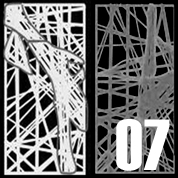Resumo
This study is based on innovative researches and combines technology, methodologies and means which are used in different sciences and processes such as informatics and computational processes, telegeoprocessing–telegeomonitoring technologies, survey science methodologies, urban and regional planning techniques in order to describe computational processes of innovative digital integrative design. This procedure refers to aspects of digital integrative design – modeling and simulation of a built-up architectural or urban area. These aspects concern a modeling process based on satellite images and specifically developed computational interfaces adapted to a CAD system, such as DTM’s mesh control points, conversion from geodetic to cartesian coordinates, bitmap adjustment to the buildings facades and surfaces normals handling, taking into account techniques that refer to other sciences such as survey, maths, astronomy and computer science. This modeling process is supported by an innovated proposed procedure that transfers remotely spatial data collected from the field (geographical coordinates and relative measurements taken in place) directly into a modeling system in order to model architectural entities and simulate simultaneously qualitative characteristics of an urban space (sound, temperature, humidity, etc) in real-time.A PARC Pesquida em Arquitetura e Construção utiliza a licença do Creative Commons (CC), preservando assim, a integridade dos artigos em ambiente de acesso aberto.
Downloads
Não há dados estatísticos.

